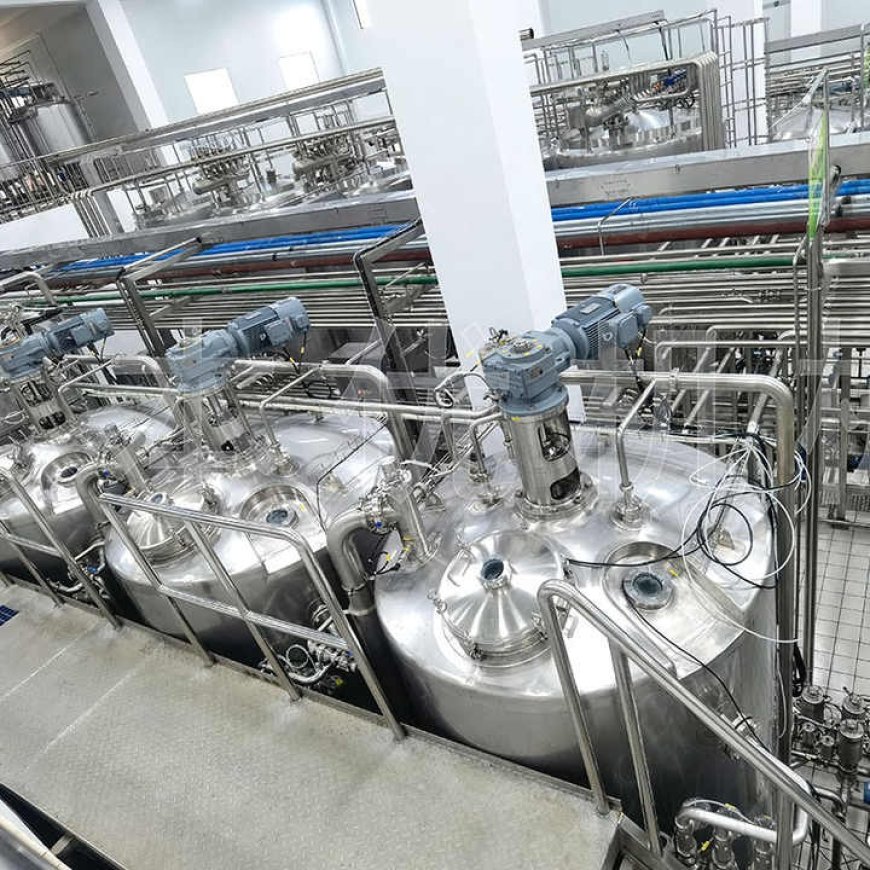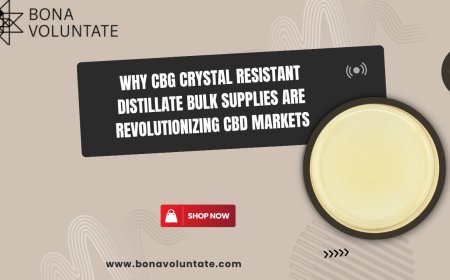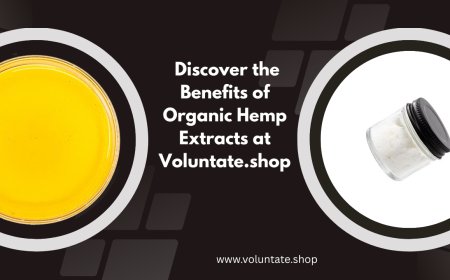UHT Milk Processing Plant Feasibility Report 2025: Project Report, Raw Materials Requirement and Setup Cost
UHT milk: long-life, ready-to-drink milk. Stays fresh for months without refrigeration, perfect for busy lives and all locations.

Ultra-high temperature (UHT) milk, also known as long-life milk, is a type of milk that undergoes a sterilization process involving heating to a high temperature for two to five seconds.It is then packaged in sterilized, airtight containers that prevent contamination, allowing it to be stored at room temperature for extended periods. UHT milk is critical in regions with limited access to refrigeration or inconsistent dairy supply. It ensures a steady availability of nutritious dairy products in remote or underdeveloped areas. It is microbiologically stable and safe to consume without boiling, making it suitable for diverse populations, including young children and the elderly.
One of the primary trends shaping the market is the rising demand for shelf-stable dairy options. Consumers, particularly in urban centers and developing economies, are seeking products that offer convenience, long shelf life, and minimal refrigeration requirements. UHT milk, with its ability to remain safe and consumable for many months without refrigeration (prior to opening), meets these needs effectively. The shift toward nuclear families, busy work schedules, and increased travel is rising the preference for ready-to-consume, long-life dairy products. Rapid urbanization across emerging economies is contributing significantly to the growth of the market. As populations migrate from rural to urban areas, there is a shift in food consumption patterns. Consumers in urban areas often favor products that are easy to store, require minimal preparation, and fit seamlessly into fast-paced lifestyles. UHT milk addresses these needs by providing a hygienic, safe, and portable dairy option that eliminates the need for daily purchases and refrigeration before opening.
IMARCs report features a detailedUHT milk processing plant feasibility reportthat helps assess the practical viability and profitability of launching a UHT milk business. This feasibility study covers market demand, resource availability, cost structure, and expected returns, providing a solid foundation for decision-making. In addition, the report explains how to start a UHT milk processing plant by guiding readers through essential steps such as capital planning, licensing, equipment procurement, and workforce management. Together, these insights empower entrepreneurs to confidently plan and execute their entry into the competitive market with reduced risk and optimized resources.
Key factors for setting up aUHT milk:
- Market Research
This change in lifestyle and consumption behavior is becoming instrumental in driving the market in both developed and developing regions. Technological improvements in UHT processing and aseptic packaging are significantly enhancing product quality, taste, and shelf stability. Modern UHT processing systems minimize nutrient loss and preserve the natural flavor of milk, addressing earlier consumer concerns regarding taste alterations due to high-temperature treatment. In addition, innovations in packaging materials, particularly the use of multi-layered cartons and eco-friendly packaging solutions, are improving product appeal while aligning with growing sustainability demands.
The report offers an exhaustive overview of the global acai berry oil industry, including a detailed breakdown by segments and regions within the sector. It also includes in-depth analyses of prices involved, production processes and the industry's profit margins.
- Market Trends
- Market Breakup by Segment
- Market Breakup by Region
- Price Analysis
- Market Forecast
Request for a Sample Report:https://www.imarcgroup.com/uht-milk-processing-plant-project-report/requestsample
- Planning and Designing
A detailed and up-to-date business plan is indispensable for mapping out the steps to establish and operate a acai berry oil processing facility. This report offers in-depth details about the process flow and the various unit operations involved in a acai berry oil production plant.
- Product Overview
- Unit Operations Involved
- Mass Balance and Raw Material Requirements
- Quality Assurance Criteria
- Technical Tests
- Legal and Regulatory Compliance
Understanding and complying with the intricate framework of business laws and regulations is a vital aspect of establishing a acai berry oil processing facility. This requires a detailed knowledge of legal obligations, such as labor laws, environmental standards, tax policies, and industry-specific regulations.
Request for a Sample Report:https://www.imarcgroup.com/uht-milk-processing-plant-project-report/requestsample
- Plant Requirements and Costs
The report offers a detailed location analysis, including insights into land selection, key criteria, location importance, environmental considerations, and associated costs for establishing a acai berry oil processing facility. It also provides information on plant layout and the factors that impact its design.
- Land, Location and Site Development
- Plant Layout
- Machinery Requirements and Costs
- Raw Material Requirements and Costs
- Packaging Requirements and Costs
- Transportation Requirements and Costs
- Utility Requirements and Costs
- Human Resource Requirements and Costs
- Hiring and Training
Effective workforce planning and recruitment strategies are critical for assembling a skilled and efficient team to manage a UHT milk processing plant. This process includes identifying the specific skills and qualifications needed for different roles and anticipating future staffing requirements based on production goals and business expansion.
- Complying with Labor Laws and Regulations
- Implementing Training Programs for Employees
- Developing Health and Safety Protocols
- Supply Chain Management
Building strong partnerships with suppliers and vendors is crucial to maintaining a dependable and cost-efficient supply chain. This requires choosing partners who can reliably deliver high-quality raw materials and components at competitive rates.
- Implementing Efficient Inventory Management Systems
- Planning Logistics and Transportation Networks
- Project Economics
This entails a thorough analysis of the costs associated with a UHT milk, covering capital expenditure (CapEx), operating expenditure (OpEx), income forecasts, taxation, depreciation, liquidity, profitability, payback period, net present value (NPV), uncertainty, sensitivity assessments, etc. In addition to this, it includes an in-depth review of financial assistance options and a comprehensive list of certifications necessary for establishing the plant.
- Capital Investments
- Operating Costs
- Expenditure Projections
- Revenue Projections
- Taxation and Depreciation
- Profit Projections
- Financial Analysis
- Marketing and Distribution Strategies:
Creating a robust marketing strategy and establishing strong brand positioning are vital for building a processing plant's market presence. This process includes conducting thorough market research to identify customer needs, preferences, and competitive trends.
- Identifying Distribution Channels and Sales Networks
- Leveraging Digital Marketing and E-Commerce Platforms
- Participating in Trade Shows and Industry Events
About Us:IMARC Group is a global management consulting firm that helps the worlds most ambitious changemakers to create a lasting impact. The company excel in understanding its clients business priorities and delivering tailored solutions that drive meaningful outcomes. We provide a comprehensive suite of market entry and expansion services. Our offerings include thorough market assessment, feasibility studies, company incorporation assistance, factory setup support, regulatory approvals and licensing navigation, branding, marketing and sales strategies, competitive landscape, and benchmarking analyses, pricing and cost research, and procurement research.
Contact Us:
IMARC Group
134 N 4th St. Brooklyn, NY 11249, USA
Email:sales@imarcgroup.com
Tel No:(D) +91 120 433 0800
United States: +1-631-791-1145



































